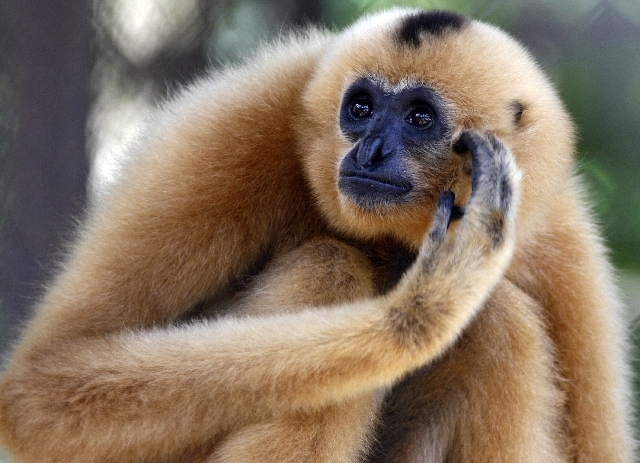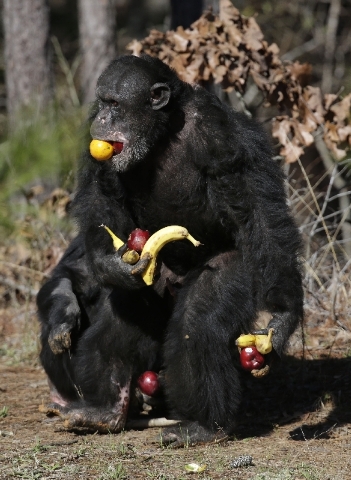Monogamy may sound sweet, but why it evolved isn’t
WASHINGTON — Only a few species of mammals are monogamous, and now dueling scientific teams think they’ve figured out why they got that way. But their answers aren’t exactly romantic.
The answers aren’t even the same.
One team looked just at primates, the animal group that includes apes and monkeys. The researchers said the exclusive pairing of a male and a female evolved as a way to let fathers defend their young against being killed by other males.
The other scientific team got a different answer after examining about 2,000 species of non-human mammals. They concluded that mammals became monogamous because females had spread out geographically, and so males had to stick close by to fend off the competition.
So it’s not about romance, said researcher Dieter Lukas of the University of Cambridge, lead author of the mammals study. “It’s just really the best he can do.”
The differing conclusions apparently arose because the two teams used different methods and sample sizes, the researchers said.
But both teams discounted a long-standing explanation for monogamy, that it provides two parents rather than one for rearing offspring. That’s just a side benefit, they said.
“Romance obviously came after” monogamy, said Christopher “Kit” Opie, an anthropology researcher at the University College London, who was the lead author of the primate study.
The studies are published online Monday in the journals Science and the Proceedings of the National Academy of Sciences. The mammal paper in Science excluded humans while the primate analysis in PNAS counted people both as monogamous and not, because that differs around the world.
Researchers said they hesitated to apply their conclusions to humans, and they acknowledged that their results aren’t exactly the stuff of Valentine’s Day.
Less than 9 percent of mammal species pair up socially.
Among primates, about 25 percent of the species are socially monogamous, Opie said. Some, like gibbons, are highly monogamous while others, like chimps, are on the other end of the spectrum, Opie said.
Opie drew on data about how 230 primate species behave, and he mapped out evolutionary family trees for them. Then, using more than 10,000 computer model runs and calculating the same mathematical probability system that famed prognosticator and statistician Nate Silver employs, Opie came up with a timeline for when certain traits developed, he said.
His result: Before any of the social traits associated with monogamy appeared, Opie saw signs of high rates of outside males killing babies. In primates that developed monogamy, such pairing up appeared to develop only later, he said.
Why? Because primates breast-feed their offspring for a long time, even for years, and competing males kill off infants if the dad doesn’t stick around to fight them off.
But Tim Clutton-Brock, a zoology professor who wrote the all-mammal study in Science with Lukas, said their research saw absolutely no evidence of infanticide spiking before monogamy. Instead, Clutton-Brock and Lukas found that in nearly every case, solitary females came before social monogamy.
Those females had spread out to monopolize food like fruit that was of better quality but harder to find. That made it harder for males to keep other males from inseminating the females, Lukas said.
“Males cannot successfully defend more than one female,” Lukas said.
So they stick around and monogamy occurs.
Frans de Waal of Emory University, who wasn’t part of either team, said he thought the Opie infanticide paper offered quantifiable support for that theory, but he wasn’t sold completely.
Another independent expert, Sue Carter of the University of Illinois at Chicago, looks at the biochemistry of monogamy in individual species, zeroing on two hormones. And those hormones “are associated with protection, defensive behavior,” so they could fit with either conclusion, she said.
Both teams did agree that they wouldn’t quite put humans in the monogamous category.
Clutton-Brock said his study found species that are monogamous have fewer physical differences between the genders. They are about the same size, live about as long. That’s not humans.
Opie agreed, saying: “Strict monogamy, such as (with) the gibbons, is not what humans do.”












